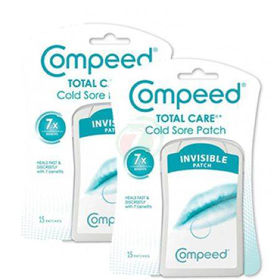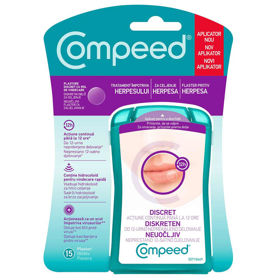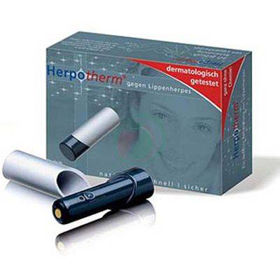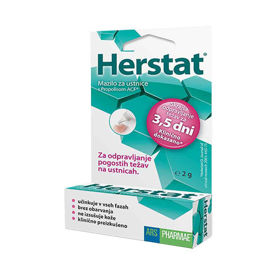Customer question:
How do you ease the discomfort of herpes on the lips? Anonymous customer's question
Pharmacist's answer:
Here are some tips:
- Warm bath or compress: A warm bath or applying a warm compress to the affected area can help reduce pain, itching, and swelling. Use a clean cloth, soak it in warm water, and gently place it on your lips.
- Avoid Touching: try to avoid touching the affected area unnecessarily. If you touch the lesions, wash your hands afterward to prevent the virus from spreading to other parts of the body or other people.
- Avoidance of eating irritating foods: avoid spicy, acidic, or irritating foods that could increase discomfort.
li>
- Using a moisturizer or cream: apply a mild, additive- and fragrance-free moisturizer to keep lips hydrated and prevent dryness.
- Painkiller: You can take an NSAID painkiller to relieve pain and reduce inflammation.
- L-lysine: L-lysine supplement, which is an amino acid that can be found in some foods or as a dietary supplement complement.
- Avoiding stress: stress can often trigger herpes outbreaks, so try to reduce stress with techniques such as meditation, yoga, or breathing exercises.
- Drinking a sufficient amount of water: keep hydrated, as the healing ability of a hydrated organism is more remarkable.
Is herpes on the lip a sexually transmitted disease?
Herpes on the lip is often the result of an infection with herpes simplex virus type 1 (HSV-1). HSV-1 is usually transmitted through direct contact with damaged skin or mucous membranes, for example, during kissing or when sharing objects such as towels or cutlery.
Although HSV-1 is usually associated with oral herpes, this virus can also be transmitted to the genital area, which can cause genital herpes. This transmission can happen through oral sex, especially during oral sex. Using adequate protection during sexual intercourse, including oral sex, can help reduce the risk of transmission of the virus.
It is essential to know that herpes on the lips is often transmitted in early childhood, for example, through kissing family members. In addition, some people who carry HSV-1 never develop symptoms or have only mild symptoms, so they may not even know they are infected.
If you have herpes on the lips, it is essential to avoid direct contact with other people, especially those with particularly weakened immune systems, pregnant women, and newborns. If you have frequent herpes outbreaks or the infection has spread to the genital area, talk to your doctor about treatment options and symptom management.
Which cream is recommended for herpes on the lip?
In treating herpes on the lip, various creams containing ingredients with antiviral, anti-inflammatory, and moisturizing properties can be used. Choosing a cream that will help reduce symptoms and accelerate wound healing is essential.
Some of the recommended products include:
- Acyclovir creams: Acyclovir is an antiviral drug often used to treat herpes. Creams containing acyclovir (e.g., Zovirax, Acyclovir) may reduce symptoms and promote healing.
- Penciclovir creams: Penciclovir is another antiviral agent that can treat herpes. Creams containing penciclovir (e.g., Fenivir) help relieve symptoms.
- Docosanol creams: docosanol is an ingredient that can reduce the frequency and duration of herpes outbreaks. Creams containing docosanol (e.g., Abreva) help relieve symptoms and speed healing.
- Natural creams with lemon balm or propolis: lemon balm (lime lemon balm) and propolis are natural ingredients with some medicinal properties. Creams containing these ingredients can help manage herpes symptoms.
Consult your doctor before using any cream, especially if you have concerns or other health problems. Your doctor can advise you on treatment and suitable products for a specific medical condition.
Can herpes on the lip disappear for life?
Unfortunately, it is still believed that herpes cannot be cured, which means that the virus remains in the body for life. After the first outbreak, the virus may subside and enter a dormant state but become active again and cause an outbreak.
Most people who have HSV-1 experience recurrent outbreaks of oral herpes, although the intensity and frequency of outbreaks vary between individuals. Some people only have infrequent and mild breakouts, while other people may have no breakouts or they may be infrequent.
For some people, breakouts may become less frequent with age. In addition, "partial immunity" may develop over time, which can reduce the severity of outbreaks. However, it is essential to understand that the virus still exists in the body, even without active symptoms.
Interesting reading: Herpes types images
Interesting reading: Scabies in humans













